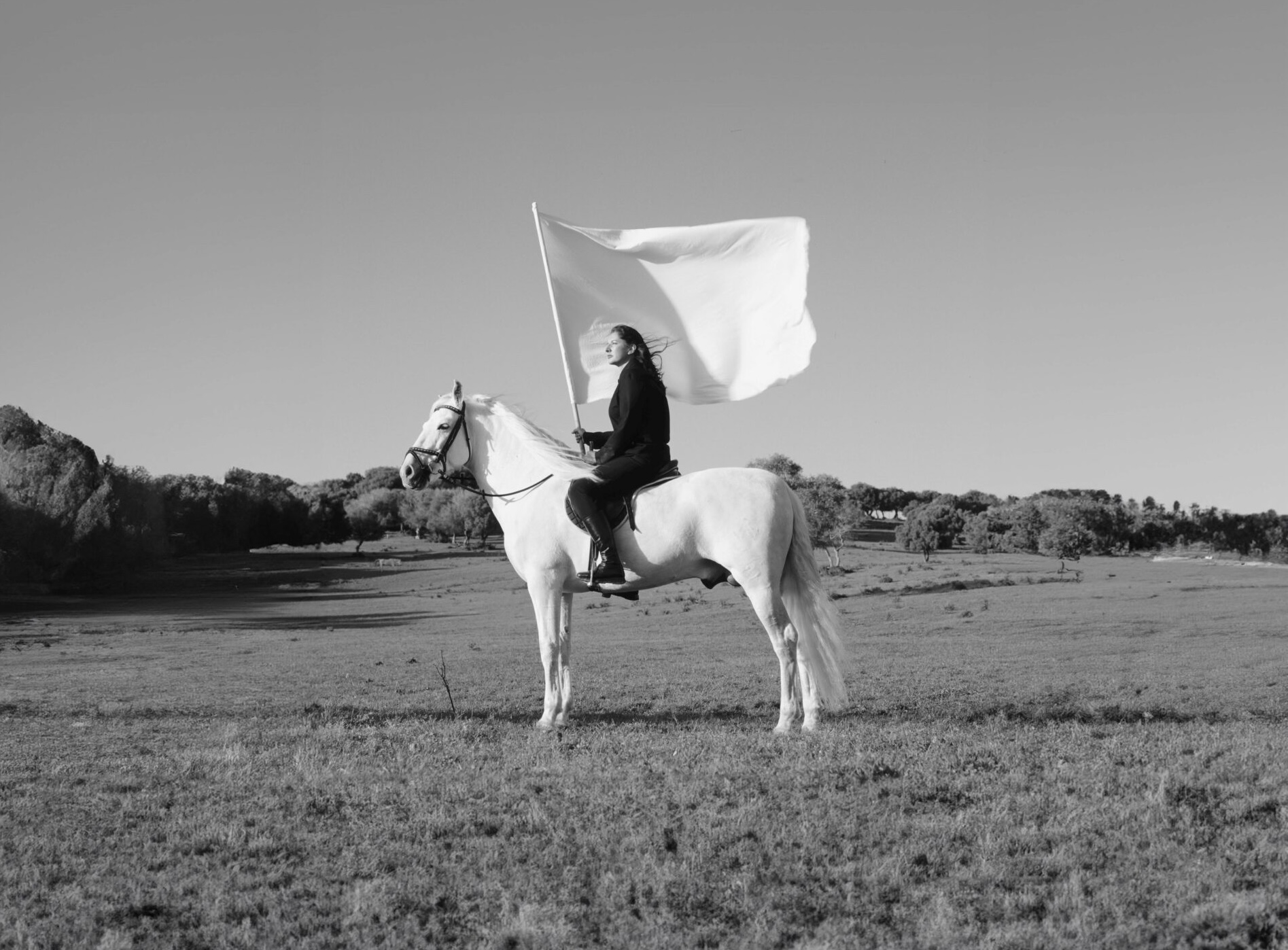

[**DIOR**](https://www.dior.com/en_us) top, skirt, necklace, and ring.
When two seemingly introspective musicians approach a venerable piano and share a duet of Daniel Johnston’s 1990 track, “True Love Will Find You in the End,” their journey through the loop of reason is cemented by the time the last word spills from their lips. The opening credits to _Lost Transmissions,_ written and directed by [Katharine O’Brien](https://www.instagram.com/katharineobrien/), explores the hard balance of using pain for art and letting it consume you. Johnston’s most revered record is known for its uniquely structured melody and humorously tragic lyrics, which are sewn into many cult listeners’ personal memories of isolation and longing. Much has been made about the late musician’s battles with mental health, in particularly his diagnosis of schizophrenia, and the connection his illness had with his despondent perception of the human disposition. With the mental health crisis looming in the music world, the idea proposes whether people with mental illnesses are more inclined to release their desolation through melodic manifestations or if the music industry imposes these adversities.
In Katharine O’Brien’s directorial debut, _Lost Transmissions,_ the California native explores the spiraling dissonance of mental illness in the realm of Los Angeles’ music scene, transposing her experiences with her grandmother and close friend who were both diagnosed with schizophrenia. The feature follows Hannah (Juno Temple), a shy songwriter who chases her friend and respected record producer, Theo Ross (Simon Pegg), through the glamour and grit of Los Angeles as he lapses from his medication for schizophrenia. The story is loosely based on what O’Brien had experienced with a group of friends when one of them went off their medication.
While the film itself is very much based in realism, it reshapes the conception of reality. Drawing from films of the Czech New Wave—whose origins come from state-sanctioned documentaries that evolved into commentaries of the broken bureaucracies of government—the Los Angeles-based writer and director offers a realistic portrayal of the individuals who are passing through the ever-revolving door of the medical-industrial complex. “It revealed to me a lot about the mental healthcare system and how broken it is, and a lot of the ways it can be fixed,” O’Brien shares. “So, I figured it was worth devoting years of my life to.”
_Lost Transmissions_ creates its own sincere soundscape with original songs that translate Theo and Hannah’s mutual understanding of trauma, hurt, and the never-ending facade of normalcy. _“Don’t let me go, I’m drifting out of orbit,”_ are the lyrics Theo tells Hannah to sing, as if he is the only one that could save her from nonexistence. O’Brien discusses that due to the mental healthcare system and laws that are in place, sometimes the only entity between sufferer’s delusions and reality is their support system. The lack of representation and resources for the mentally ill further perpetuates the “stigma that prevents people from really sharing what they are going through if they are suffering from it.” Viewing film as a conversation between art and experience, O’Brien defies the preconceived notions of the disorder. “It made me realize that even if what they’re saying is a bit nonsensical,” she explains, “maybe if their channels were opened up a bit, it would allow you to see things that really are going on.” As Theo navigates through his delusions, he discovers the lost transmissions of everyday life that are overlooked, from radio waves to telephone signals, which can’t be seen, but are irrevocably there.
In a time where emerging cultures are seeking representation and the marginalized are encouraged to speak up more than ever before, it is vital to have a community that can empower, learn, and support one another. “We are really failing society when we aren’t taking care of people who can’t take care for themselves,” O’Brien says. She hopes to inspire more conversations that will cultivate an environment for people who suffer from mental illnesses to share their adversity and experiences. Simon Pegg, who plays the vulnerable Theo, candidly expresses how people with schizophrenia should not be dismissed as “crazy.” “As individuals,” he remarks over email, “we need to be openminded and sympathetic towards those who suffer severely. That means not relegating those with mental health issues to a subcategory of humanity, to be feared and ignored.”
After facing her own adversity as a serious female director, O’Brien knows the importance of transcending her struggles into fuel for her practice and fighting the good fight. “With a strain on shared resources, we need nurturing qualities and we need to think about future generations,” she states. “I’m excited to see the direction the world will shift politically and economically with women in more leadership positions.”
* * *
[Stream _Lost Transmissions_ now](https://www.youtube.com/watch?v=PdVm6Xb4jxQ)
* * *
Photographed by: [Yana Yatsuk](https://www.instagram.com/yanayatsuk/?hl=en).
Styled by: [Luca Kingston](https://www.instagram.com/luca__kingston/).
Hair: [Avian King](https://www.instagram.com/avianking/) using [Davines](https://www.davines.com) at [The Rex Agency](https://therexagency.com/index.php).
Makeup: [Heather-Rae Bang](https://www.instagram.com/heatherraebang/) using [Dior](https://www.dior.com/en_us/makeup/new-makeup) at [The Rex Agency](https://therexagency.com/index.php).
 
[**DIOR**](https://www.dior.com/en_us) top, skirt, necklace, and ring.
When two seemingly introspective musicians approach a venerable piano and share a duet of Daniel Johnston’s 1990 track, “True Love Will Find You in the End,” their journey through the loop of reason is cemented by the time the last word spills from their lips. The opening credits to _Lost Transmissions,_ written and directed by [Katharine O’Brien](https://www.instagram.com/katharineobrien/), explores the hard balance of using pain for art and letting it consume you. Johnston’s most revered record is known for its uniquely structured melody and humorously tragic lyrics, which are sewn into many cult listeners’ personal memories of isolation and longing. Much has been made about the late musician’s battles with mental health, in particularly his diagnosis of schizophrenia, and the connection his illness had with his despondent perception of the human disposition. With the mental health crisis looming in the music world, the idea proposes whether people with mental illnesses are more inclined to release their desolation through melodic manifestations or if the music industry imposes these adversities.
In Katharine O’Brien’s directorial debut, _Lost Transmissions,_ the California native explores the spiraling dissonance of mental illness in the realm of Los Angeles’ music scene, transposing her experiences with her grandmother and close friend who were both diagnosed with schizophrenia. The feature follows Hannah (Juno Temple), a shy songwriter who chases her friend and respected record producer, Theo Ross (Simon Pegg), through the glamour and grit of Los Angeles as he lapses from his medication for schizophrenia. The story is loosely based on what O’Brien had experienced with a group of friends when one of them went off their medication.
While the film itself is very much based in realism, it reshapes the conception of reality. Drawing from films of the Czech New Wave—whose origins come from state-sanctioned documentaries that evolved into commentaries of the broken bureaucracies of government—the Los Angeles-based writer and director offers a realistic portrayal of the individuals who are passing through the ever-revolving door of the medical-industrial complex. “It revealed to me a lot about the mental healthcare system and how broken it is, and a lot of the ways it can be fixed,” O’Brien shares. “So, I figured it was worth devoting years of my life to.”
_Lost Transmissions_ creates its own sincere soundscape with original songs that translate Theo and Hannah’s mutual understanding of trauma, hurt, and the never-ending facade of normalcy. _“Don’t let me go, I’m drifting out of orbit,”_ are the lyrics Theo tells Hannah to sing, as if he is the only one that could save her from nonexistence. O’Brien discusses that due to the mental healthcare system and laws that are in place, sometimes the only entity between sufferer’s delusions and reality is their support system. The lack of representation and resources for the mentally ill further perpetuates the “stigma that prevents people from really sharing what they are going through if they are suffering from it.” Viewing film as a conversation between art and experience, O’Brien defies the preconceived notions of the disorder. “It made me realize that even if what they’re saying is a bit nonsensical,” she explains, “maybe if their channels were opened up a bit, it would allow you to see things that really are going on.” As Theo navigates through his delusions, he discovers the lost transmissions of everyday life that are overlooked, from radio waves to telephone signals, which can’t be seen, but are irrevocably there.
In a time where emerging cultures are seeking representation and the marginalized are encouraged to speak up more than ever before, it is vital to have a community that can empower, learn, and support one another. “We are really failing society when we aren’t taking care of people who can’t take care for themselves,” O’Brien says. She hopes to inspire more conversations that will cultivate an environment for people who suffer from mental illnesses to share their adversity and experiences. Simon Pegg, who plays the vulnerable Theo, candidly expresses how people with schizophrenia should not be dismissed as “crazy.” “As individuals,” he remarks over email, “we need to be openminded and sympathetic towards those who suffer severely. That means not relegating those with mental health issues to a subcategory of humanity, to be feared and ignored.”
After facing her own adversity as a serious female director, O’Brien knows the importance of transcending her struggles into fuel for her practice and fighting the good fight. “With a strain on shared resources, we need nurturing qualities and we need to think about future generations,” she states. “I’m excited to see the direction the world will shift politically and economically with women in more leadership positions.”
* * *
[Stream _Lost Transmissions_ now](https://www.youtube.com/watch?v=PdVm6Xb4jxQ)
* * *
Photographed by: [Yana Yatsuk](https://www.instagram.com/yanayatsuk/?hl=en).
Styled by: [Luca Kingston](https://www.instagram.com/luca__kingston/).
Hair: [Avian King](https://www.instagram.com/avianking/) using [Davines](https://www.davines.com) at [The Rex Agency](https://therexagency.com/index.php).
Makeup: [Heather-Rae Bang](https://www.instagram.com/heatherraebang/) using [Dior](https://www.dior.com/en_us/makeup/new-makeup) at [The Rex Agency](https://therexagency.com/index.php).

[**DIOR**](https://www.dior.com/en_us) top, skirt, necklace, and ring.
When two seemingly introspective musicians approach a venerable piano and share a duet of Daniel Johnston’s 1990 track, “True Love Will Find You in the End,” their journey through the loop of reason is cemented by the time the last word spills from their lips. The opening credits to _Lost Transmissions,_ written and directed by [Katharine O’Brien](https://www.instagram.com/katharineobrien/), explores the hard balance of using pain for art and letting it consume you. Johnston’s most revered record is known for its uniquely structured melody and humorously tragic lyrics, which are sewn into many cult listeners’ personal memories of isolation and longing. Much has been made about the late musician’s battles with mental health, in particularly his diagnosis of schizophrenia, and the connection his illness had with his despondent perception of the human disposition. With the mental health crisis looming in the music world, the idea proposes whether people with mental illnesses are more inclined to release their desolation through melodic manifestations or if the music industry imposes these adversities.
In Katharine O’Brien’s directorial debut, _Lost Transmissions,_ the California native explores the spiraling dissonance of mental illness in the realm of Los Angeles’ music scene, transposing her experiences with her grandmother and close friend who were both diagnosed with schizophrenia. The feature follows Hannah (Juno Temple), a shy songwriter who chases her friend and respected record producer, Theo Ross (Simon Pegg), through the glamour and grit of Los Angeles as he lapses from his medication for schizophrenia. The story is loosely based on what O’Brien had experienced with a group of friends when one of them went off their medication.
While the film itself is very much based in realism, it reshapes the conception of reality. Drawing from films of the Czech New Wave—whose origins come from state-sanctioned documentaries that evolved into commentaries of the broken bureaucracies of government—the Los Angeles-based writer and director offers a realistic portrayal of the individuals who are passing through the ever-revolving door of the medical-industrial complex. “It revealed to me a lot about the mental healthcare system and how broken it is, and a lot of the ways it can be fixed,” O’Brien shares. “So, I figured it was worth devoting years of my life to.”
_Lost Transmissions_ creates its own sincere soundscape with original songs that translate Theo and Hannah’s mutual understanding of trauma, hurt, and the never-ending facade of normalcy. _“Don’t let me go, I’m drifting out of orbit,”_ are the lyrics Theo tells Hannah to sing, as if he is the only one that could save her from nonexistence. O’Brien discusses that due to the mental healthcare system and laws that are in place, sometimes the only entity between sufferer’s delusions and reality is their support system. The lack of representation and resources for the mentally ill further perpetuates the “stigma that prevents people from really sharing what they are going through if they are suffering from it.” Viewing film as a conversation between art and experience, O’Brien defies the preconceived notions of the disorder. “It made me realize that even if what they’re saying is a bit nonsensical,” she explains, “maybe if their channels were opened up a bit, it would allow you to see things that really are going on.” As Theo navigates through his delusions, he discovers the lost transmissions of everyday life that are overlooked, from radio waves to telephone signals, which can’t be seen, but are irrevocably there.
In a time where emerging cultures are seeking representation and the marginalized are encouraged to speak up more than ever before, it is vital to have a community that can empower, learn, and support one another. “We are really failing society when we aren’t taking care of people who can’t take care for themselves,” O’Brien says. She hopes to inspire more conversations that will cultivate an environment for people who suffer from mental illnesses to share their adversity and experiences. Simon Pegg, who plays the vulnerable Theo, candidly expresses how people with schizophrenia should not be dismissed as “crazy.” “As individuals,” he remarks over email, “we need to be openminded and sympathetic towards those who suffer severely. That means not relegating those with mental health issues to a subcategory of humanity, to be feared and ignored.”
After facing her own adversity as a serious female director, O’Brien knows the importance of transcending her struggles into fuel for her practice and fighting the good fight. “With a strain on shared resources, we need nurturing qualities and we need to think about future generations,” she states. “I’m excited to see the direction the world will shift politically and economically with women in more leadership positions.”
* * *
[Stream _Lost Transmissions_ now](https://www.youtube.com/watch?v=PdVm6Xb4jxQ)
* * *
Photographed by: [Yana Yatsuk](https://www.instagram.com/yanayatsuk/?hl=en).
Styled by: [Luca Kingston](https://www.instagram.com/luca__kingston/).
Hair: [Avian King](https://www.instagram.com/avianking/) using [Davines](https://www.davines.com) at [The Rex Agency](https://therexagency.com/index.php).
Makeup: [Heather-Rae Bang](https://www.instagram.com/heatherraebang/) using [Dior](https://www.dior.com/en_us/makeup/new-makeup) at [The Rex Agency](https://therexagency.com/index.php).
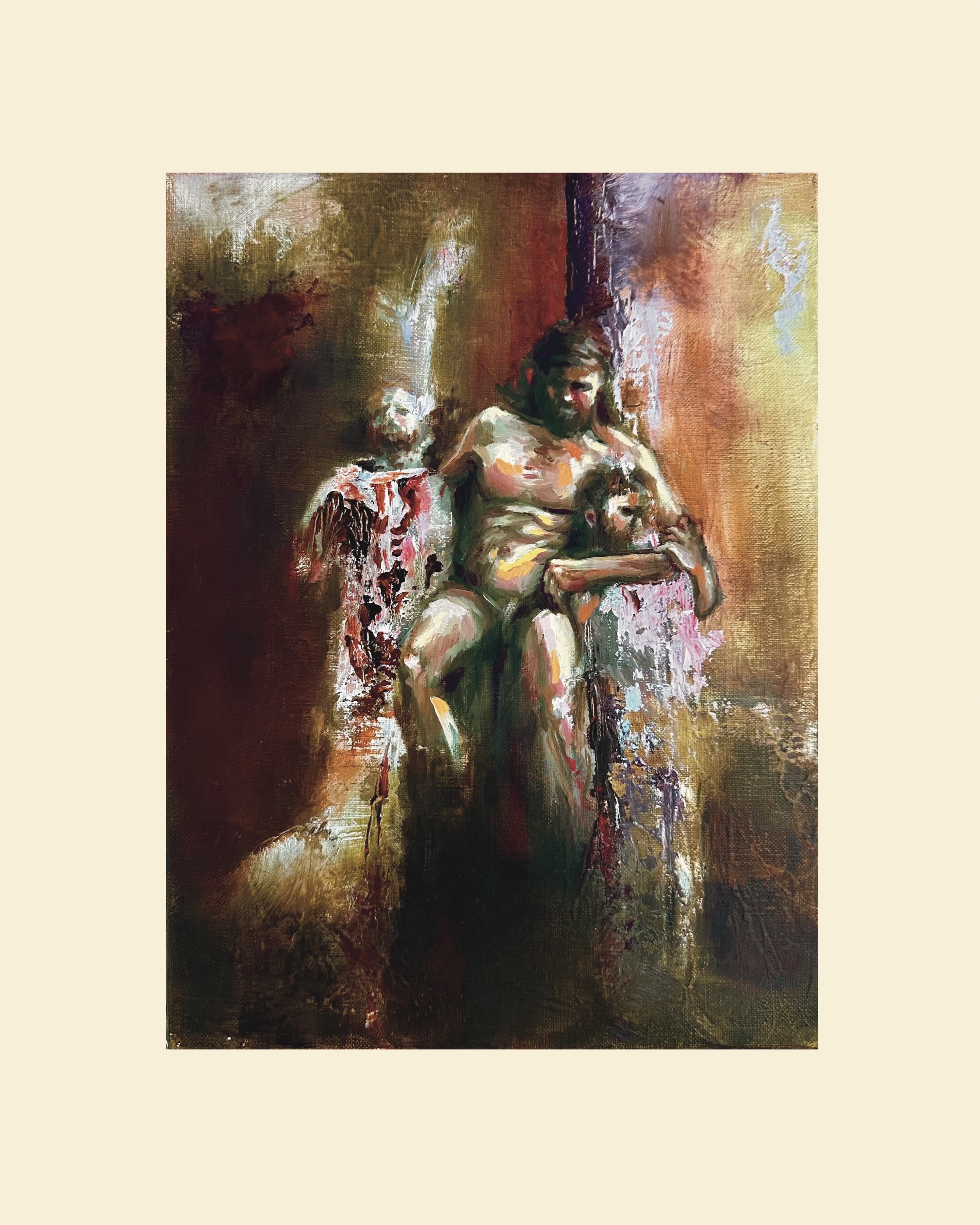



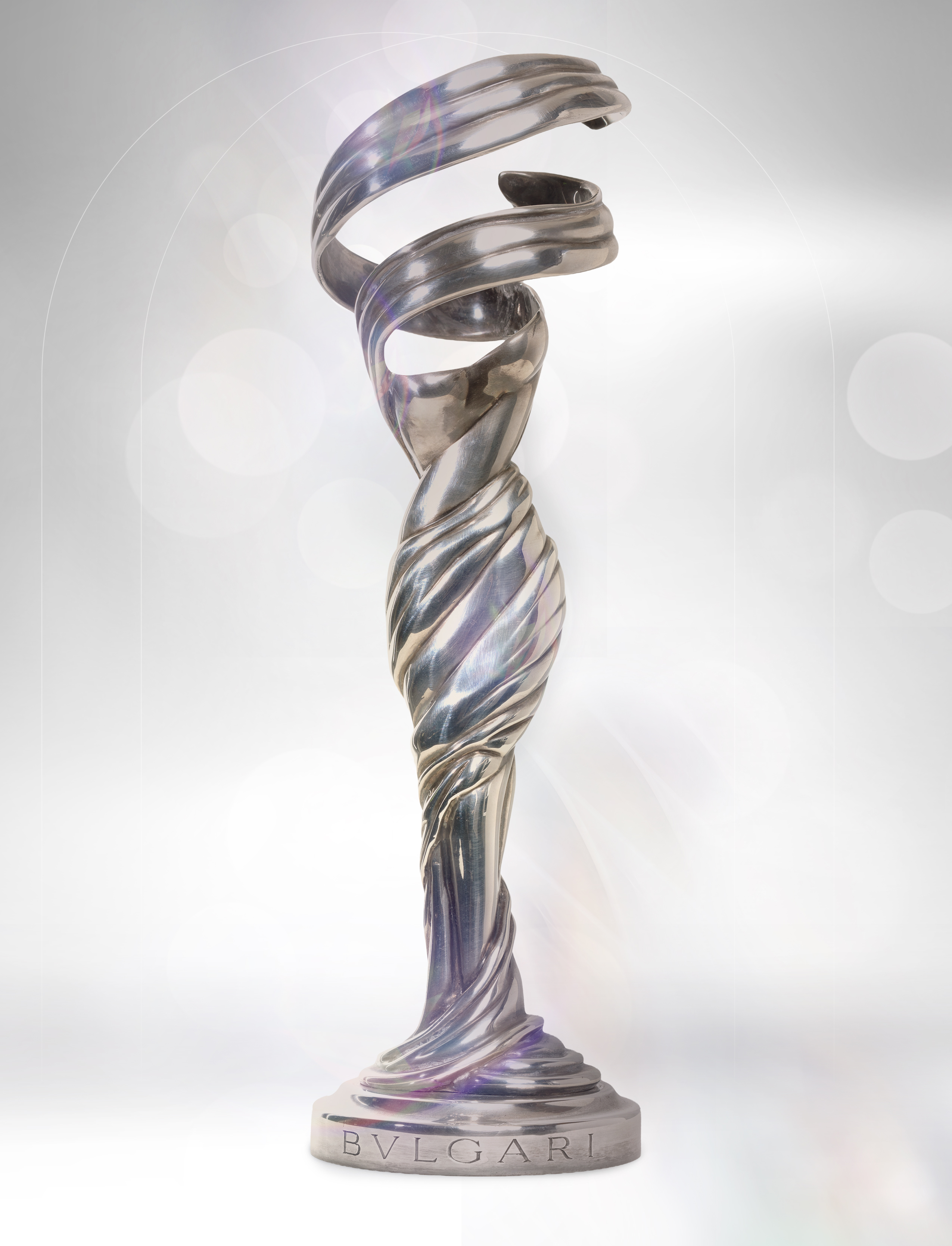
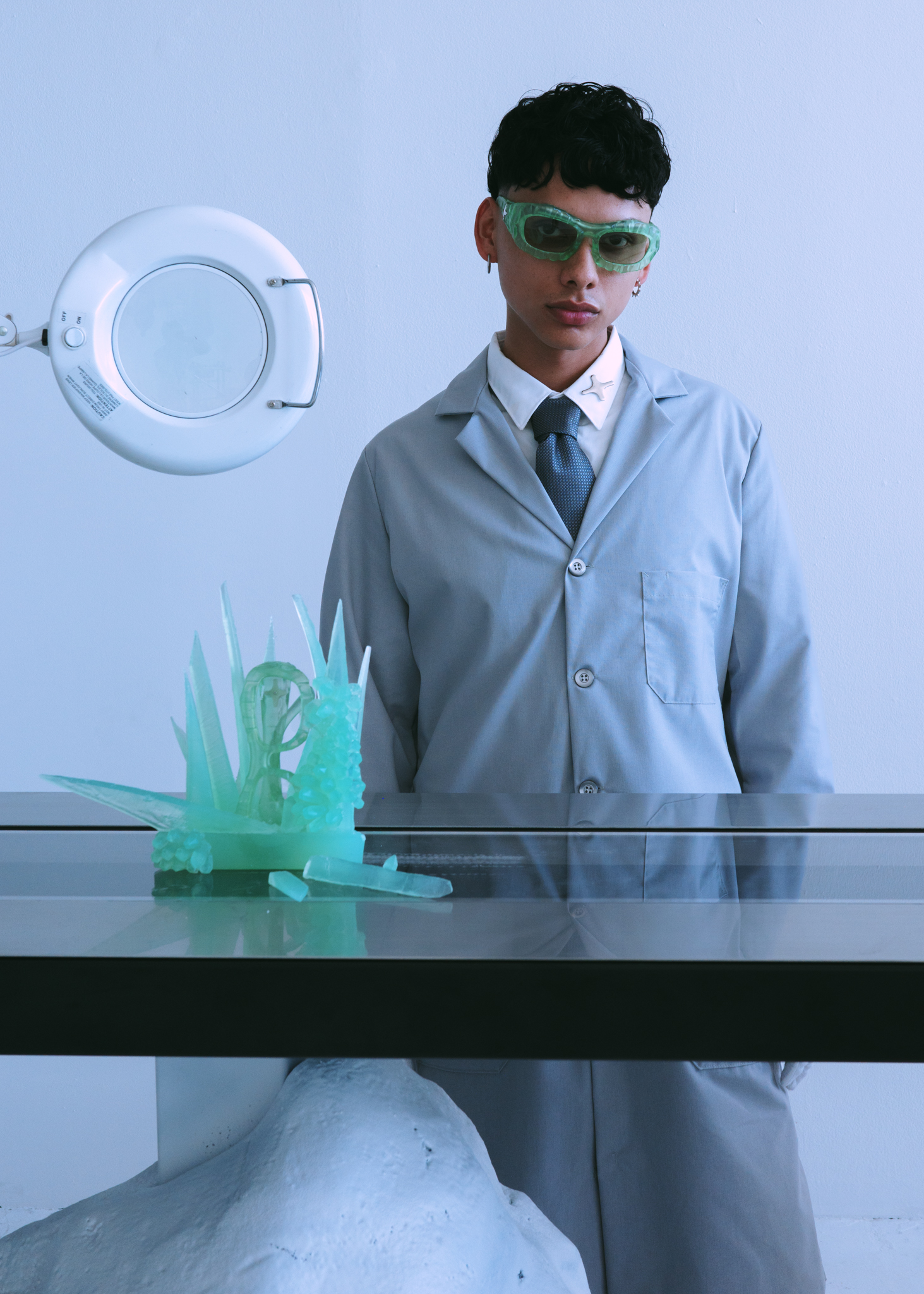


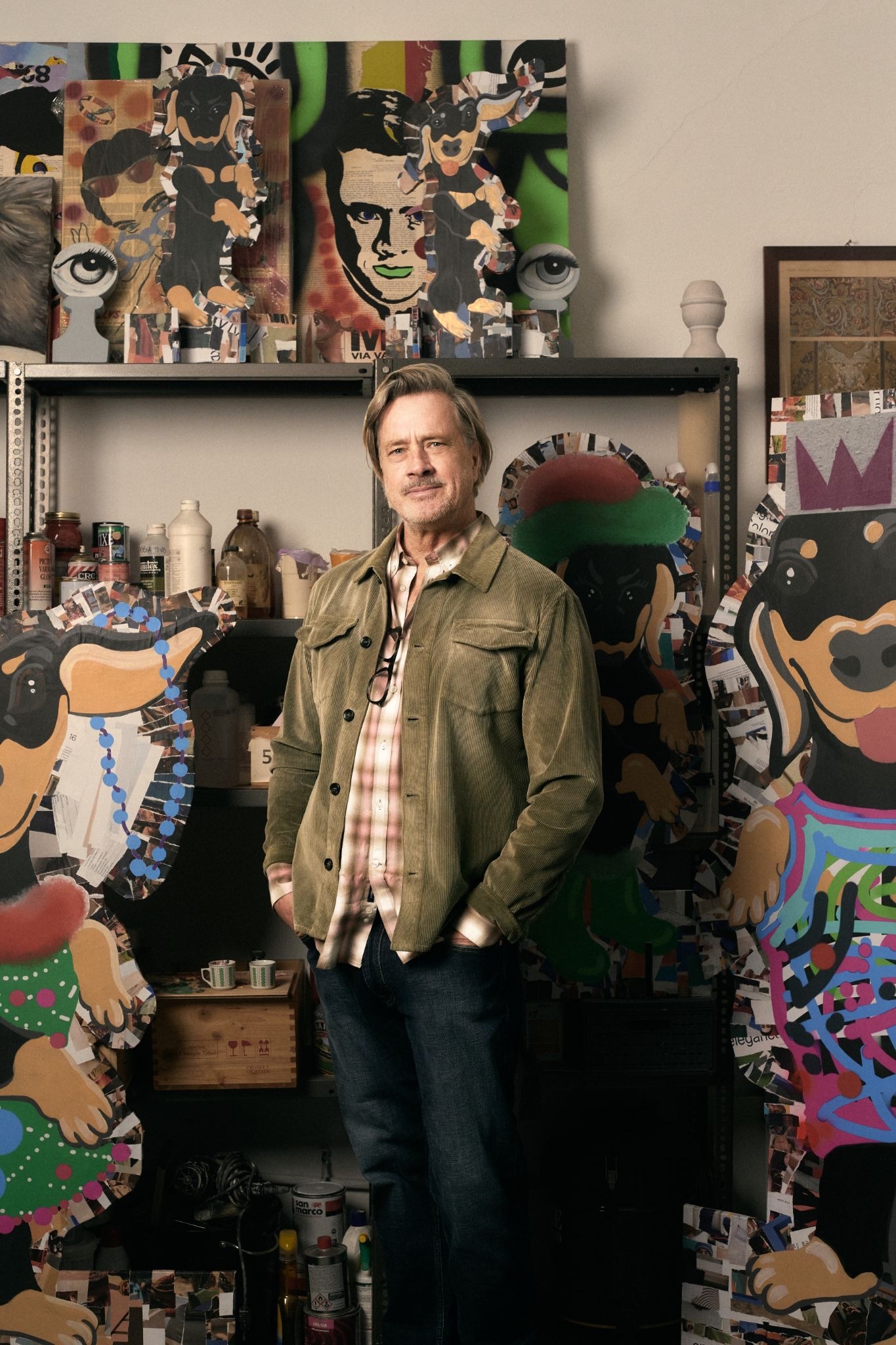
.JPG)
.jpg)

